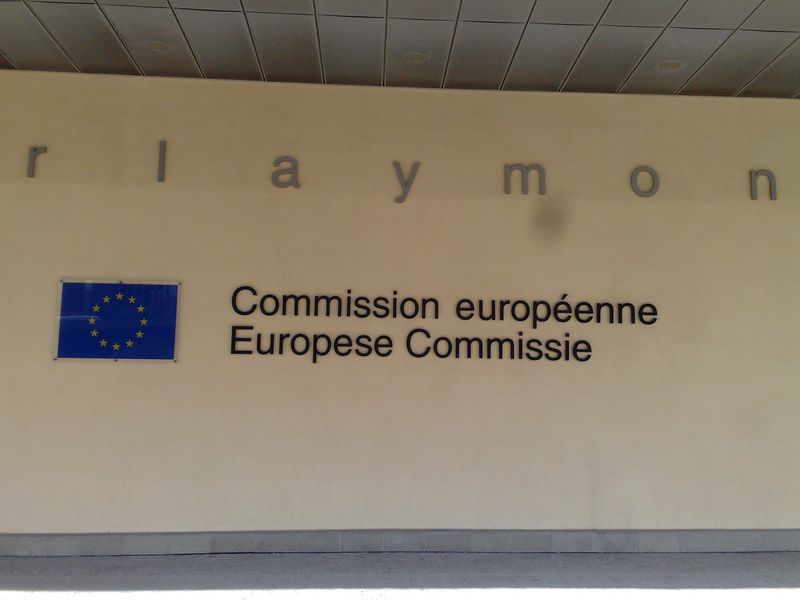Gheorghi Stoev: There is no need of 60 measures but just 1
Adelina Marini, April 5, 2010
 The only useful measure to help end the budget crisis currently is spending cuts with a concrete percentage. This is what Gheorghi Stoev replied to the questionnaire euinside* sent him with regard to the anti crisis measures of the government, released this week. Gheorghi Stoev is managing associate at the research company Industry Watch. The main problem is in the way the measures are described because the authors mix revenues in the budget with incomes in the Treasury. This means that whoever has written the measures is mistaking current expenses, like taxes, rents, concessions and everything else, with incomes - like privatisation, public debt emissions, etc., the economist says.
The only useful measure to help end the budget crisis currently is spending cuts with a concrete percentage. This is what Gheorghi Stoev replied to the questionnaire euinside* sent him with regard to the anti crisis measures of the government, released this week. Gheorghi Stoev is managing associate at the research company Industry Watch. The main problem is in the way the measures are described because the authors mix revenues in the budget with incomes in the Treasury. This means that whoever has written the measures is mistaking current expenses, like taxes, rents, concessions and everything else, with incomes - like privatisation, public debt emissions, etc., the economist says.
Furthermore, these measures will increase the budgetary deficit. "If the purpose is to find 1.6 bn levs in revenues, this target is not achieved. In other words, it is not achieved even on paper. Because we are not talking about realising these measures. I am talking about that in the very document the euro area criteria are not fulfilled (in fact, the calculations of the government do not fulfill the 3% of GDP budgetary deficit criteria which apply not only for euro area members but to all EU member as well). If we secure these revenues through privatisation and debt emissions, this money will not be registered as budget income but under line - meaning that it will be written in the column "financing of the budgetary deficit", Mr Stoev added.
According to him, the important questions the government should answer are four:
1. What are the estimations of the Ministry of Finance about the expected budgetary deficit?
2. If, hypothetically, this deficit is expected to reach 4 bn levs and the idea is to be reduced to 2.4 bn, which is a reduction by 1.6 bn levs, then the government should say so;
3. How the budgetary deficit will be financed - reserve, possibilities for debt, privatisation?
4. The worst scenario, according to Gheorghi Stoev, is abolishing the currency board to allow the government to start printing money to finance the deficit.
The expert added that the government got itself into trouble with the NCTC (the National Council for Trilateral Cooperation), representing various interests and that each representative defended its own. The budget crisis is a crisis of spending. There are too big social spending pledges in the budget. Actually, no one cares who made these pledges. The important thing is to find a solution.
Mr Stoev is determined that still there are enough resources to help finance the budget crisis without the need of increasing tax burden or similar measures. Cutting budgetary spending would be enough - expenditure for maintenance, railway subsidies and many others. "Politically this means that there are several tens of thousands of people who will carry the burden of these measures. But these several tens of thousands of people cannot be taken out in the streets by the trade unions", Gheorghi Stoev added.
The ceiling of the possibility to squeeze money from the private sector has been reached in the end of the government of Simeon Saxecobourggotta - around 40% of GDP. This means that since more revenues cannot be secured, there must be a way to cut spending.
*The questions euinside sent to several economists:
How should we understand the following measure: "Gathering of additional internal and external financial resources, aimed at supporting the fiscal reserve" - where this additional financial resources should come from and how?
Many of the measures have no deadline and a financial effect estimation (or how much they would cost), could you give your assessment of how effective these measures would be and when should we expect an effect?
For example, the plans for greenhouse gasses sale, privatisation, measures to restrict public spending and the completion of e-government, etc?
How possible it is to achieve the goal of collecting 1.6 bn levs this year from these measures? And, in fact, what problems this money can solve?
Which measures do you consider good and working? (for example, are the measures to recover fiscal discipline good ones?)
What is your opinion about the decision to increase the capital of the state Bulgarian Development Bank, aimed at directing financial resources toward small and medium enterprises?
The sick-leaves - the National Insurance Institute will start paying sick-leaves from day 4 - by then the employer will pay the first 2 days of a sick-leave and the worker will finance the 3rd day. Given that the worker and the employer have already paid health insurance contributions, isn't this in fact a hidden increase of health contributions?
Regarding the measures in support of household incomes, do you approve the commitment to increase the minimal wage and do you think that all these measures are directed toward the poorest and unemployed rather then to the middle class of working people?
Is there a real possibility VAT to be increased to 22% (from the current rate of 20%) and what would the consequences of such a measure be?
Do you share the government's satisfaction with the work of the National Council for Trilateral Cooperation (NCTC) and that this is exactly how it should work in the future?
Are the measures adequate against the background of the development of the crisis in Bulgaria and the forecasts that it will be a long one?
Do you think the claims of the cabinet that the state has no money because the previous government has concluded contracts for which there were no money in the budget, have any grounds?
 | © euinside
| © euinside | © euinside
| © euinside | © euinside
| © euinside